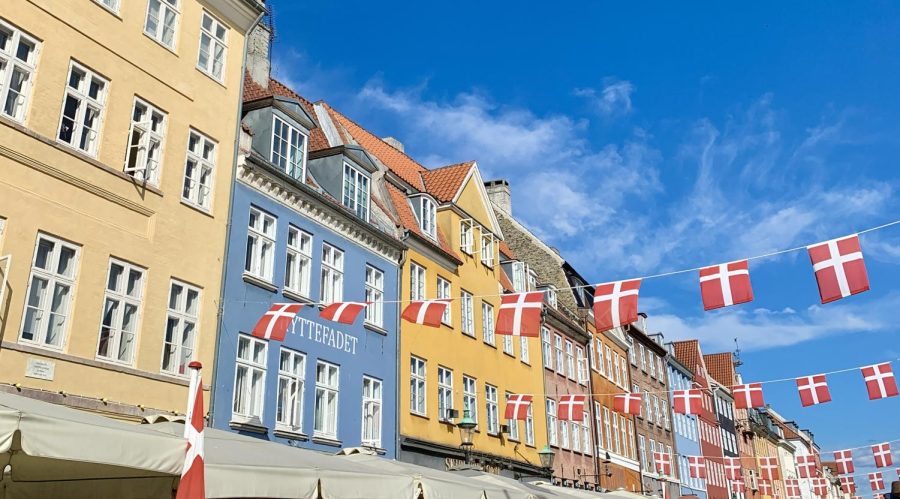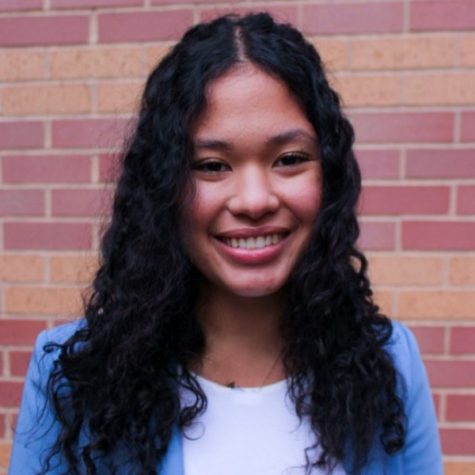A Life of Losing Language
Copenhagen
February 15, 2023
I speak like a 3-year-old.
That’s usually how I’ll respond when somebody asks how well I speak Bahasa Indonesia—or, Indonesian. It’s always embarrassing to say, but it’s the most accurate description of my skill. Although both my parents are fluent in Bahasa, their native language, I only know the simplest of everyday words and phrases. I struggle to maintain basic conversation unless it’s a short exchange about, for instance, what to have for dinner, when my mom will get home from work or where to find a misplaced item in the house.
People are usually surprised. Most of those who know me superficially—professors, classmates, and acquaintances—assume that I’m American. They’re shocked to hear that I’d never lived in the country before I moved to Boston for school in 2019. “Wow, but your accent,” they’ll say. “It’s so American.”
There was a time in my life where that sentence would fill me with pride and reassurance. Pride that I had mastered the coveted accent that certifies my eloquence and is proof-positive of my intelligence and capability. Reassurance that my voice would never be a barrier to social assimilation or flag me as alien, outsider, other. These feelings have since faded.
Some people are also surprised because it’s hard to imagine not speaking the primary language of their parents and extended family. How could a person not speak the same language as their parents after growing up in the family home? People don’t ask me that question outright, but its sentiment is usually at the heart of their curiosity and is central to my struggle with cultural identity.
Although I was born in Indonesia, on the east coast of Borneo Island, I only lived there for the first four and a half years of my life. After that, my family moved around every few years—first to Canada, then Libya, Saudi Arabia, Denmark and Scotland. Now, 17 years later, I live in the United States while the rest of my family is split between England and the United Arab Emirates. Having lived outside of Indonesia for so long, the distance has taken its toll on my sense of Indonesian cultural identity, diminishing it to basically nothing.
We moved around so much for my dad’s job as an engineer in oil and gas, an industry in which many employees are globally mobile. My parents always knew that our family was going to live all over the world. They always sent my sister and me to private American or international schools. They believed these schools provided the best available education, and nothing was more important to them.
The price of that decision (in addition to exorbitant tuition fees) was that, in every country, I was a part of the international community, not the local one. If it isn’t already obvious, the language of internationalism is English. (We have British imperialism to thank for that.) Therefore I didn’t retain much of the language of wherever we lived. And the culture, or rather cultures, that I was most exposed to often had less to do with where I was than who my classmates were.
Although there are many people who experience generational language loss among children of immigrants, guilt is a familiar and constant feeling. Because of the language barrier, my relationships with my extended family, including my grandmothers and most of my cousins, are severely constricted. Most conversations happen with my mother or father acting as translator. What’s more is that such conversations are also few and far between. It’s devastating to know that most of my family hears about my life narrated in a voice that isn’t mine.
Of course, it’s never too late to learn a language. It’s one of my life’s goals to eventually become fluent in Bahasa. It’ll be an investment of lots of time and effort, but the reward will be huge and meaningful: honoring my cultural heritage and connecting deeply with more of my family.
My cultural experience isn’t one entirely, or even mostly, of emptiness. There are parts of Indonesia I’ve been able to retain and cherish. My sweet-tooth cravings of onde-onde, martabak manis and es campur. The softness I feel when my parents call me sayang (darling). The desire to share what few words I do know with my closest companions.
Though I don’t feel wholly or strongly Indonesian, I also don’t feel that I’m without culture, without belonging or without home. I’ve found meaning and lived profound experiences in every country. In the United States, I’ve had an incredible college experience, academically and among wonderful friends. Here I’ve developed the belief that I’m supported, well-prepared and deserving of whatever future I desire.
England, where my mother and sister live, hosts my favorite breakfast spot in the world, Federal Café. It’s the perfect place for french toast and Turkish eggs, and to catch up with my family. There, I cherish the few moments a year that we get to be together.
Our house in Scotland was a storybook-cottage. The whole backside of the house looked out over lush, rolling hills where cows graze under a bright blue sky and a soft sun. Living there gave me a new appreciation for nature and the serenity of the countryside.
In Denmark, I lived my most exciting and explorative coming-of-age years. Traipsing around the cool, cobbled streets of Copenhagen, my life was full of overwhelming pleasure; though, it was full of growing pains too. Here is where I found what would be closest to a lifelong home.
In Saudi Arabia, wherever I stood in the compound where we lived, I was never more than a 15 minute walk to the beach. I don’t know if I’ll ever be able to say that again. In Libya, we lived in the biggest, ugliest house we’ve ever lived in. I bonded deeply with my dad playing soccer in the unused rooms.
Canada was the first place I had ever felt cold before, but our kindergarten class played outside for recess barring negative 40-degree (Celsius) weather. Luckily, I adored my teacher and loved school so I happily obliged.
Indonesia will always be where my family—my beautiful, caring, loving family—is from. That alone makes it forever special. I’m grateful and honored to carry on the legacy of Indonesia through them and for them.



Yonik • Feb 23, 2023 at 5:11 am
Semangat
Bablo • Feb 17, 2023 at 1:41 pm
Hope you get to learn Bahasa language soon
Benny • Feb 15, 2023 at 5:49 pm
Thanks for sharing. An exciting experience adds to the anxiety of generation Z and the diaspora.